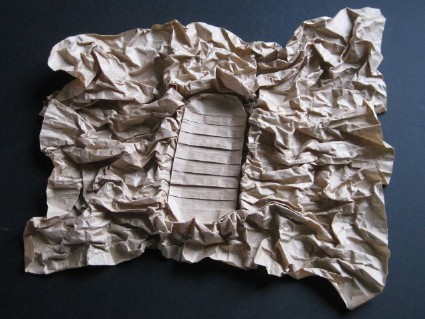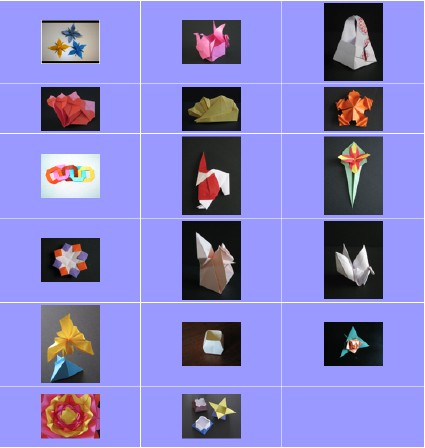
 | Welcome on MOOC-invitation |
|
| New! | An invitation to practice origami | map | Discovery of the world of folding paper Learning to fold |
| Back MOOC1 | Journey 2 | Sequence 4 | <--- page 6 | page 7 | page 8---> |
 |
Folding paper for disability or dependence |
| Folding paper involves many physical or intellectual skills. The question of who can practice origami is often asked. The answer can take several forms: - of course: any valid person who likes manual work, - less obvious: people with intellectual, visual, auditory or physical disabilities, for playful folding. - even less obvious: people in need of therapy to relieve or even cure their disability. Bending sessions facilitate understanding, individual knowledge acquisition and concentration and manual skills. There are some references on the internet on these last two points. We can cite : * visually impaired: the project Aveuglami animated by Michel Lucas, which gave the opportunity to small groups of blind people to regularly practice paper folding. The photos of some models folded by these people illustrate this page. You can also download the article Origami as a Tool to Teach Geometry for Blind Students by Tania Maria Moratelli Pinho, Cristina Maria Carvalho Delou and Neuza Rejane Wille Lima. * intellectual Disability: The site Origami in Mental Health Therapy by George Ho describes many experiences and very rich in all sectors of this disability. * hearing Impairment: Read article Kaili Chen's Origami Math for Students Who Are Deaf & Hard of Hearing , which describes in detail the interest of origami in the teaching of mathematics, and the necessary adaptations for the deaf or hard of hearing. * physical disability: these are difficulties related to defective hands or arms. The testimony of Ronald Koh, a great Hong Kong folder on his practice of recovering his folding skills after a stroke is easily found on the internet. * two general articles on the therapeutic use of paper folding: - an article Health Benefits of Origami to read on the Origami Resource Center website. - an article in French, ORIGAMI - a promising new direction in art therapy by Larysa Osadchuk * dependent people: more generally, people staying at the hospital (visit the Facebook Page by Rosemary Browne) or in retirement homes. There are some experiences of weekly folding workshops, which require a lot of involvement and dedication from the facilitators. When one discovers what all those people with severe disabilities can do, it is amusing (and saddening) to hear people who have no physical or intellectual problems say « It's not for me, it's too difficult » so they did not even try ... |
17 photo(s)